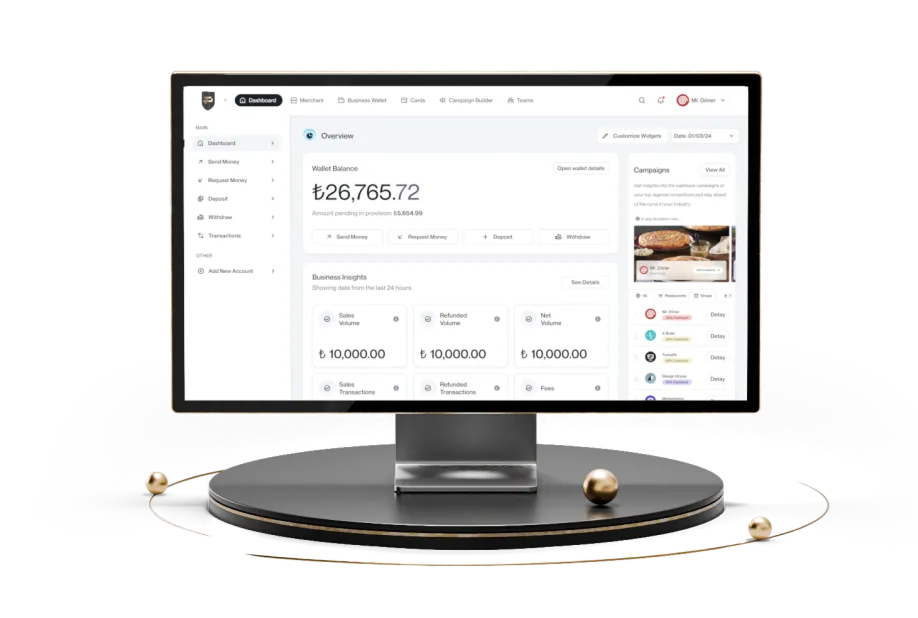Nitelikli Yatırımcı Kimdir?
Finansal piyasalarda yatırım yaparken, geniş fırsatlara erişim sağlamak ve daha esnek yatırım stratejileri geliştirmek isteyen yatırımcılar için “nitelikli yatırımcı” statüsü önemli bir ayrıcalıktır. Sermaye Piyasası Kurulu (SPK) tarafından belirlenen belirli finansal ve deneyim kriterlerini karşılayan bu yatırımcılar, geleneksel yatırım araçlarının ötesine geçerek özel sermaye fonları, hedge fonlar ve girişim sermayesi gibi daha sofistike yatırım seçeneklerine erişebilirler. Peki, nitelikli yatırımcı olmak için hangi şartları sağlamak gerekir ve bu statü ne gibi avantajlar sunar? Nitelikli yatırımcı kavramına dair merak edilen tüm detaylar Papel Blog’da.
Nitelikli yatırımcı nedir?
Sermaye Piyasası Kurulu (SPK)’nın belirlediği kriterleri karşılayan ve talep etmeleri durumunda müşteri olarak kabul edilen kişi ya da kurumlar nitelikli yatırımcı olarak tanımlanır. Bu yatırımcılar, finansal piyasalarda daha geniş yatırım imkanlarına ve esnekliğe sahiptir ve belirli avantajlardan faydalanabilirler. Yatırımcılara daha geniş bir yatırım yelpazesi ve esneklik sunan nitelikli yatırımcı statüsüne sahip olabilmek için belirlenen finansal ve deneyim kriterleri karşılanmalıdır.
Nitelikli yatırımcı olmanın şartları nelerdir?
Sermaye Piyasası Kurulu’nun (SPK) düzenlemelerine göre nitelikli yatırımcı statüsüne sahip olabilmek için aşağıdaki şartlardan en az ikisi sağlanmalıdır. Bu şartları sağlayan yatırımcılar yazılı talepte bulunarak bu statüye sahip olabilirler.
Finansal varlık eşitliği
Yatırımcının nakit mevduatlarının ve sermaye piyasası araçlarının toplamının en az 1 milyon TL değerinde olması gerekir.
İşlem deneyimi
Yatırımcının son bir yıl içerisinde işlem yapılacak piyasada üç aylık dönemlerde en az 500 bin TL hacminde ve en az 10 işlem gerçekleştirmiş olması gerekir.
Profesyonel deneyim veya lisans
Yatırımcının finans alanında en az iki yıl üst düzey yönetici pozisyonunda çalışmış olması ya da sermaye piyasası alanında en az beş yıl uzman personel olarak çalışmış olması veya Sermaye Piyasası Faaliyetleri İleri Düzey Lisansı veya Türev Araçlar Lisansı’na sahip olması gerekir.

Nitelikli yatırımcı olmanın avantajları nelerdir?
Nitelikli yatırımcı statüsüne sahip olan yatırımcılar finansal piyasalarda çeşitli avantajlardan faydalanmaktadır. Bu avantajları şu şekilde sıralayabiliriz:
Geniş yatırım yelpazesi
Nitelikli yatırımcılar, geleneksel menkul kıymetlerin yanı sıra özel sermaye fonları, hedge fonlar, serbest şemsiye fonları, girişim sermayesi ve gayrimenkul yatırımları gibi özelleştirilmiş yatırım araçlarına erişebilirler.
Esnek portföy yönetimi
Nitelikli yatırımcılar düşük maliyetli ve çeşitlendirilmiş portföyler oluşturup risk yönetiminden esneklik kazanabilirler. Bu sayede de daha karmaşık ve yüksek riskli finansal ürünlere yatırım yapabilmeleri kolaylaşır.
Vergi avantajları
Nitelikli yatırımcılar bazı yatırım araçlarındaki vergi avantajlarından yararlanabilirler.
Özel tekliflere erişim
Nitelikli yatırımcılar, genel yatırımcılara sunulmayan özel sermaye fonları ve diğer sınırlı tekliflere katılma fırsatına sahip olabilirler.
Düşük komisyon oranları
Büyük miktarlarda yatırım yapan nitelikli yatırımcılara, uzun vadede maliyetlerini düşürerek net getiri oranlarını artırmayı amaçlayan düşük komisyon oranları sunulabilir.
Profesyonel destek ve yönetim
Karmaşık yatırım stratejileri için profesyonel portföy yöneticilerinin deneyiminden ve önerilerinden yararlanma fırsatı olan nitelikli yatırımcılar bu sayede daha bilinçli yatırım kararları alabilirler.
Nitelikli yatırımcı olmanın birçok avantajı vardır tıpkı Papel Dijital Cüzdan sahibi olmanın birçok avantajı olduğu gibi. Papel mobil uygulamasını indir, üyeliğini tamamla Papel Dijital Cüzdan’la avantajlar her an cebinde olsun.
Nitelikli yatırımcılar hangi araçlara yatırım yapabilir?
Nitelikli yatırımcıların finansal piyasalarda geniş yatırım araçları yelpazesine erişim fırsatları vardır. Nitelikli yatırımcılar, bu araçlar sayesinde daha geniş yatırım fırsatlarından ve potansiyel olarak daha yüksek getiri elde edebilirler. Bu yatırımcıların yatırım yapabileceği başlıca araçları şu şekilde sıralayabiliriz:
Özel sermaye fonları: Genellikle yüksek getiri potansiyeline sahip olan ve halka arz edilmeyen özel sermaye fonları nitelikli yatırımcılara sunulur.
Serbest (hedge) fonlar: Genellikle daha yüksek riskli olan ve farklı yatırım stratejileri uygulanabilen serbest (hedge) fonları yalnızca nitelikli yatırımcılara açıktır.
Girişim sermayesi yatırımları: Erken aşama şirketlere veya yenilikçi projelere yatırım yapma imkânı sunan girişim sermayesi yatırımları nitelikli yatırımcıların portföylerini çeşitlendirmelerine fırsat verir.
Gayrimenkul yatırımları: Nitelikli yatırımcılar özelleştirilmiş gayrimenkul projelerine ya da fonlarına yatırım yaparak portföylerini genişletebilirler.
Yapılandırılmış borçlanma araçları: Özel olarak tasarlanmış ve genellikle daha karmaşık olan bu yapılandırılmış borçlanma araçlarına da nitelikli yatırımcılar erişebilir.
Nitelikli yatırımcı başvurusu nasıl yapılır?
Nitelikli yatırımcı statüsü kazanarak özel yatırım fırsatlarına erişebilmek için başvuru yapman gerekir. Nitelikli yatırımcı statüsü kazanmak için aşağıdaki adımları takip edebilirsin.
Kriterleri karşılayıp karşılamadığını değerlendir
Yukarıda da bahsettiğimiz gibi nitelikli yatırımcı statüsüne sahip olabilmek için karşılanması beklenen şartlar vardır ve bu şartların en az ikisine sahip olunması gerekir.
- Toplam nakit mevduatlarının ve sermaye piyasası araçlarının değerinin en az 1 milyon TL olması,
- Son bir yıl içinde her üç aylık dönemde en az 500 bin TL hacminde ve en az 10 adet işlem gerçekleştirmiş olman,
- Finans alanında en az iki yıl üst düzey yönetici pozisyonunda çalışmış olman veya sermaye piyasası alanında en az beş yıl uzman personel olarak görev yapmış olman ya da Sermaye Piyasası Faaliyetleri İleri Düzey Lisansı veya Türev Araçlar Lisansı’na sahip olman
Gerekli belgeleri hazırla
Şartları karşılayıp karşılamadığını değerlendirdin ve başvuru yapmaya karar verdin. Bu aşamada başvuru yapmak için hazırlaman gereken bazı belgeler var. Bu belgeler şu şekildedir:
· Banka hesap ekstreleri, yatırım hesap dökümleri gibi varlıklarını gösteren belgeler
· Yatırım faaliyetlerini kanıtlayan işlem kayıtları
· İş deneyimini ya da sahip olduğun lisansları gösteren belgeler
Başvuru formunu doldur
Belgelerini tamamladıktan sonra çalışmakta olduğun banka ya da finansal kurumdan nitelikli yatırımcı formu al. Bu formu eksiksiz ve doğru bir şekilde doldurduğundan emin ol.
Başvurunu ilet
Doğru ve eksiksiz bir şekilde doldurduğun nitelikli yatırımcı formunu ve başvuru için hazırladığın belgeleri ilgili finansal kuruma ver. Bundan sonra başvurunun değerlendirilmesini bekleyeceksin. Başvurunun onaylanması durumunda nitelikli yatırımcı statüsünü kazanır ve bu statünün sunduğu avantajlardan yararlanmaya başlayabilirsin.
Sık sorulan sorular
Serbest (hedge) fon nedir?
Serbest (hedge) fonlar, genellikle sadece nitelikli yatırımcılara açık olan ve yüksek risk alarak alternatif yatırım stratejileri uygulayan yatırım fonlarıdır.
Özel sermaye fonu nedir?
Özel sermaye fonu, halka açık olmayan şirketlere yatırım yaparak uzun vadeli değer artışı sağlamayı hedefleyen yatırım fonudur.
Serbest şemsiye fonu nedir?
Serbest şemsiye fonu, içerisinde farklı stratejilere sahip alt fonlar barındıran ve yalnızca nitelikli yatırımcılara sunulan yatırım fonu türüdür.
Kaynaklar: 1.
Bu blog yazısında sunulan bilgiler; yalnızca genel nitelikte olup hukuk, finans veya yatırım danışmanlığı teşkil etmemektedir. İçerik, bilgilendirme amacıyla hazırlanmış olup, özel durumlarınız için profesyonel danışmanlık almanız tavsiye edilir. Yazıda yer alan ifadeler, herhangi bir bağlayıcılık veya sorumluluk doğurmamakta, yalnızca yazarın değerlendirmelerini yansıtmaktadır. Alacağınız kararlarda tüm sorumluluk tarafınıza ait olup, Papel Elektronik Para ve Ödeme Hizmetleri A.Ş. bu bağlamda herhangi bir yükümlülük kabul etmemektedir.

